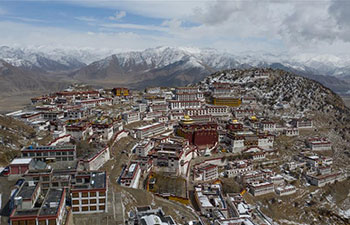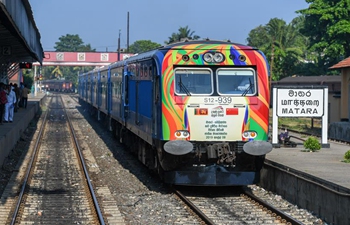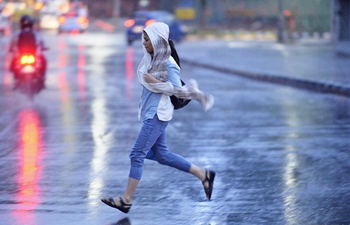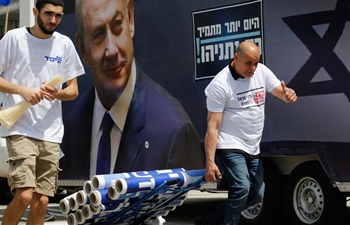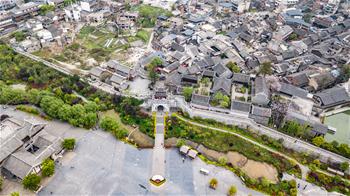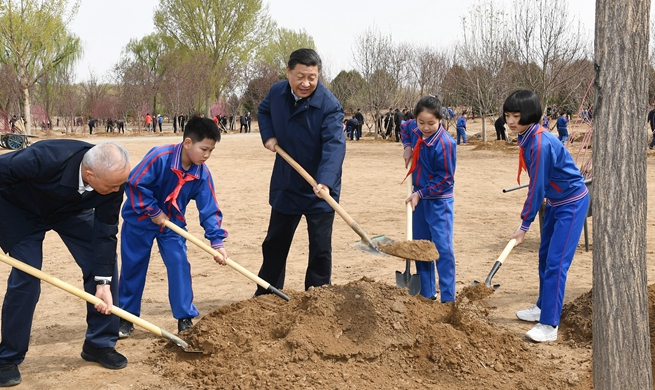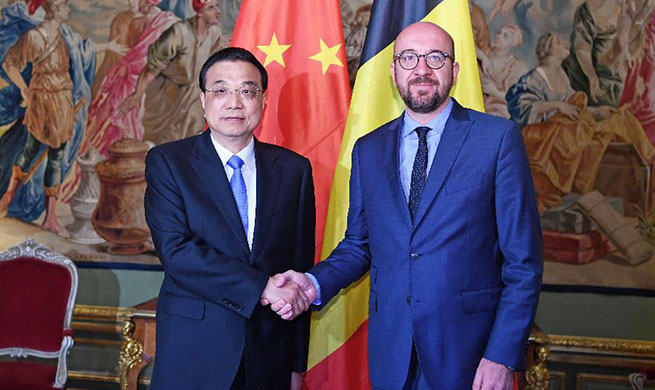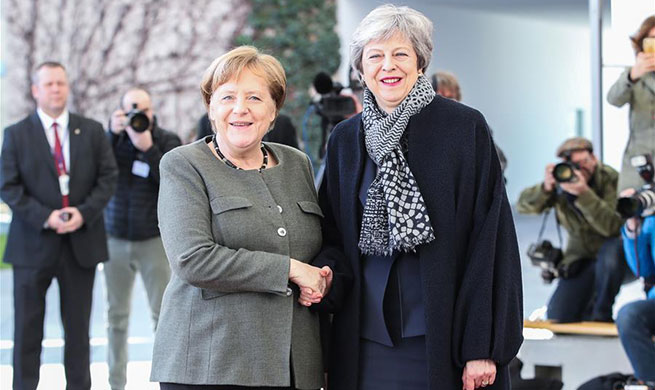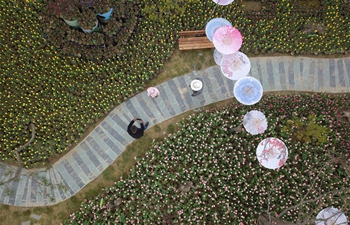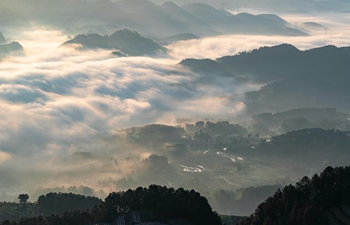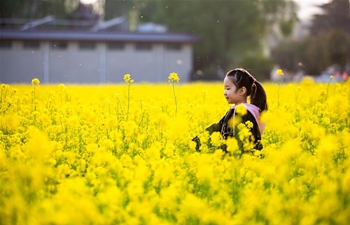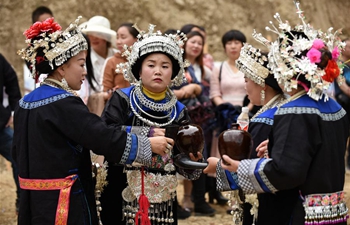UNITED NATIONS, April 9 (Xinhua) -- The UN High Commissioner for Refugees, Filippo Grandi, on Tuesday called for political will to tackle refugee crisis around the world.
Times are very challenging with regard to the issue of refugees as there is unprecedented stigmatization of refugees and migrants, traditional responses to refugee crises are increasingly inadequate, and there is a sense of an overwhelming crisis, Grandi told the Security Council in a briefing.
"But to portray this as a global crisis that is not manageable, in my opinion -- I'd like to propose -- it is wrong."
With political will, with improved responses as enshrined in the new Global Compact for Refugees adopted by the General Assembly in December 2018, it is possible to address these crises and the UN Security Council has a critical role to play, said Grandi.
He asked for efforts to create peace and security, to support countries that host the largest numbers of refugees, and to remove obstacles to solutions, and in particular to the return of people to their own countries.
Of the nearly 70 million people that are displaced or refugees, most are fleeing conflict. If conflicts were prevented or resolved, most refugee flows would disappear, said Grandi.
He deplored fragmented approaches to peacemaking and insufficient approaches to peacebuilding. "We see a lot of addressing the symptoms without addressing the causes."
However, political solutions to conflicts are not easy in today's world and forced displacement will continue for some time, he noted, asking for more support to countries that host large numbers of refugees.
He took the example of Venezuela. Three and a half million Venezuelans have left the country and crossed into about 15 countries, with Colombia, Peru, Ecuador and Brazil being the most impacted. But the UN appeal for the humanitarian crisis in that region is one of the most poorly funded globally, said Grandi.
Eighty-five percent of the world's refugees are in poor or middle-income countries and support for those countries must be stepped up, he said.
Grandi also asked to remove obstacles, in particular, obstacles that prevent people from returning to their countries of origin. Syrian refugees, he said, have three major concerns: material concerns, including shelter, services, jobs; security concerns, including conscription and retaliation in general; and legal and administrative obstacles related to property and to documentation.
He asked countries to create conditions for the return of refugees. Returns must be dignified and secure and safe, he stressed.




